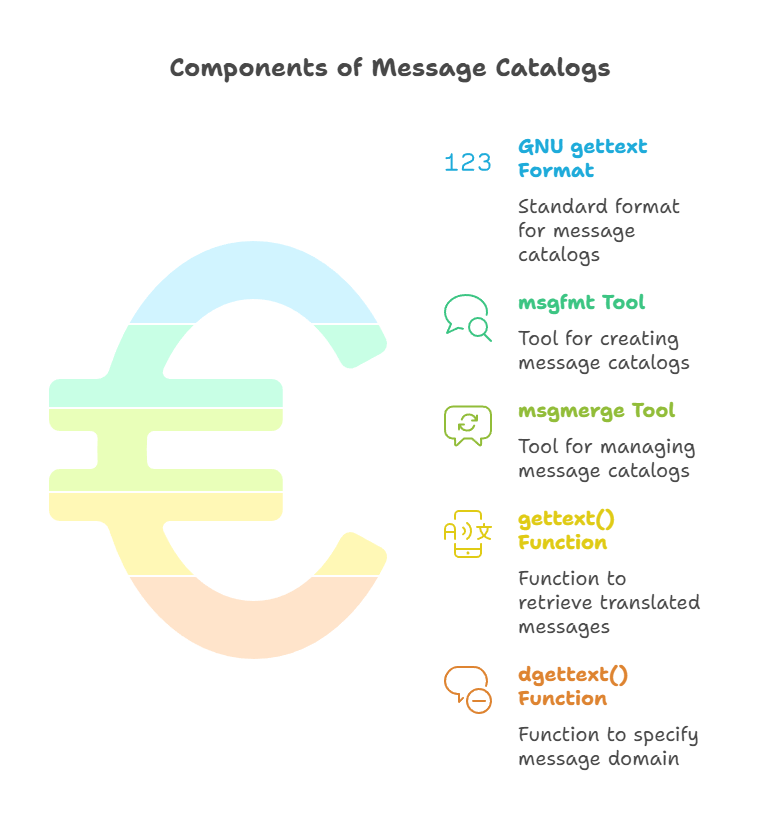Introduction to Multi-language Support
In today's globalized world, software applications often need to cater to users from diverse linguistic backgrounds. Multi-language support allows programs to display messages, prompts, and other text in different languages according to user preferences. In this chapter, we'll delve into implementing multi-language support in C, exploring various techniques and best practices.
Basic Concepts
Character Encoding
Character encoding is the foundation of multi-language support. It defines how characters are represented as bytes in memory. The most common encoding schemes include ASCII, UTF-8, and UTF-16. UTF-8 is widely preferred as it supports the entire Unicode character set.
Localization
Localization is the process of adapting software to specific languages and regions. It involves translating text, formatting dates, times, and numbers according to local conventions. C provides mechanisms for implementing localization effectively.
Internationalization (i18n)
Using setlocale()
C’s standard library provides the setlocale() function to set the program’s locale, enabling localization support. It allows programs to adapt to the language and cultural conventions of the user’s environment.
#include <locale.h>
int main() {
setlocale(LC_ALL, ""); // Set locale to the user's environment
// Code for internationalized application
return 0;
}
Message Catalogs
Introduction to Message Catalogs
Message catalogs are files containing translated messages for different languages. In C, these catalogs are typically in the GNU gettext format and can be created and managed using tools like msgfmt and msgmerge.
Using gettext() and dgettext()
The gettext() function retrieves the translated message corresponding to a given key. dgettext() allows specifying the message domain explicitly.
#include <stdio.h>
#include <libintl.h>
#include <locale.h>
#define _(String) gettext (String)
int main() {
setlocale(LC_ALL, ""); // Set locale
bindtextdomain("my_app", "/usr/share/locale");
textdomain("my_app");
printf(_("Hello, world!\n"));
return 0;
}

Advanced Techniques
Plural Forms
Different languages have varying rules for pluralization. C provides functions like ngettext() to handle plural forms effectively.
#include <stdio.h>
#include <libintl.h>
#include <locale.h>
#define N_(String) gettext_noop (String)
int main() {
setlocale(LC_ALL, ""); // Set locale
bindtextdomain("my_app", "/usr/share/locale");
textdomain("my_app");
int count = 2;
printf(ngettext("One apple", "%d apples", count), count);
return 0;
}
Implementing multi-language support in C empowers developers to create applications that can reach a global audience. By leveraging techniques like internationalization and message catalogs, developers can ensure their software is accessible and user-friendly across different languages and cultures. Understanding character encoding, localization, and advanced techniques like plural forms is essential for building robust multi-language applications in C.Happy coding!❤️
